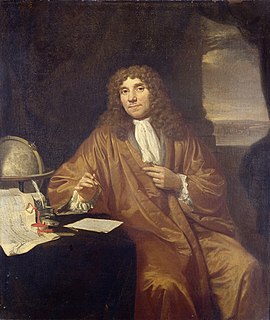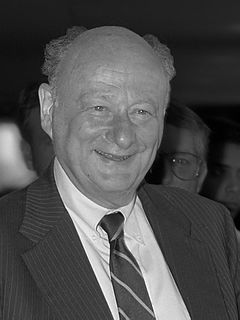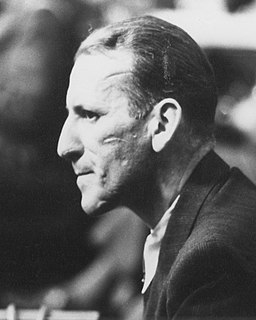A Quote by Antonie van Leeuwenhoek
[M]y work, which I've done for a long time, was not pursued in order to gain the praise I now enjoy, but chiefly from a craving after knowledge, which I notice resides in me more than in most other men. And therewithal, whenever I found out anything remarkable, I have thought it my duty to put down my discovery on paper, so that all ingenious people might be informed thereof.
Related Quotes
So long as people do not consider all men as their brothers and do not consider human life as the most sacred thing, which rather than destroy they must consider it their first and foremost duty to support; that is so long as people do not behave towards one another in a religious manner, they will always ruin one another's lives for the sake of personal gain.
But medicine has long had all its means to hand, and has discovered both a principle and a method, through which the discoveries made during a long period are many and excellent, while full discovery will be made, if the inquirer be competent, conduct his researches with knowledge of the discoveries already made, and make them his starting-point. But anyone who, casting aside and rejecting all these means, attempts to conduct research in any other way or after another fashion, and asserts that he has found out anything, is and has been victim of deception.
One day, I made a remark that I might work with people with mental illness, and somebody in the press heard it, and it was in the paper. And the more I thought about it and found out about it, the more I thought it was just a terrible situation with no attention. And I've been working on it ever since.
After experience had taught me that all the usual surroundings of social life are vain and futile; seeing that none of the objects of my fears contained in themselves anything either good or bad, except in so far as the mind is affected by them, I finally resolved to inquire whether there might be some real good having power to communicate itself, which would affect the mind singly, to the exclusion of all else: whether, in fact, there might be anything of which the discovery and attainment would enable me to enjoy continuous, supreme, and unending happiness.
I try to get a feeling of what's going on in the story before I put it down on paper, but actually most of this breaking-in period is one long, fantastic daydream, in which I think about anything but the work at hand. I can't turn out slews of stuff each day. I wish I could. I seem to have some neurotic need to perfect each paragraph?each sentence, even?as I go along.
I don't like honors. I'm appreciated for the work that I did, and for people who appreciate it, and I notice that other physicists use my work. I don't need anything else. I don't think there's any sense to anything else.... I've already got the prize. The prize is the pleasure of finding the thing out, the kick in the discovery, the observation that other people use it. Those are the real things. The honors are unreal to me. I don't believe in honors... I can't stand it, it hurts me.
A whole big, giant world full of men. Men with blue eyes. Brown eyes. Green eyes. And indescribable shades in between. Tall men. Short men. Skinny men. Built men. And all combinations thereof. Nice men (so I've heard, but never really seen). Mean men. Decent men, indecent. And who knows which is the best kind to have, to hold, to love? I'd say, with so many men in the world, it would pay to sample a few. Scratch that. More than a few. Lots and lots. And then a few more. And maybe, after years of research, you might find one worth not throwing back. But hey, the fun is in the fishing.
[The Middle East conflict ] just kind of ran its course for me. For a long time I could justify doing it to myself, no matter how irrational it was. It was important to me and my work. And I just don't feel it in the same way any more. When it comes up and it's important to me, I'll do it, but more out of sense of duty than desire - which used to be a big part of it.
What is natural in me, is natural in many other men, I infer, and so I am not afraid to write that I never had loved Steerforth better than when the ties that bound me to him were broken. In the keen distress of the discovery of his unworthiness, I thought more of all that was brilliant in him, I softened more towards all that was good in him, I did more justice to the qualities that might have made him a man of a noble nature and a great name, than ever I had done in the height of my devotion to him.



































